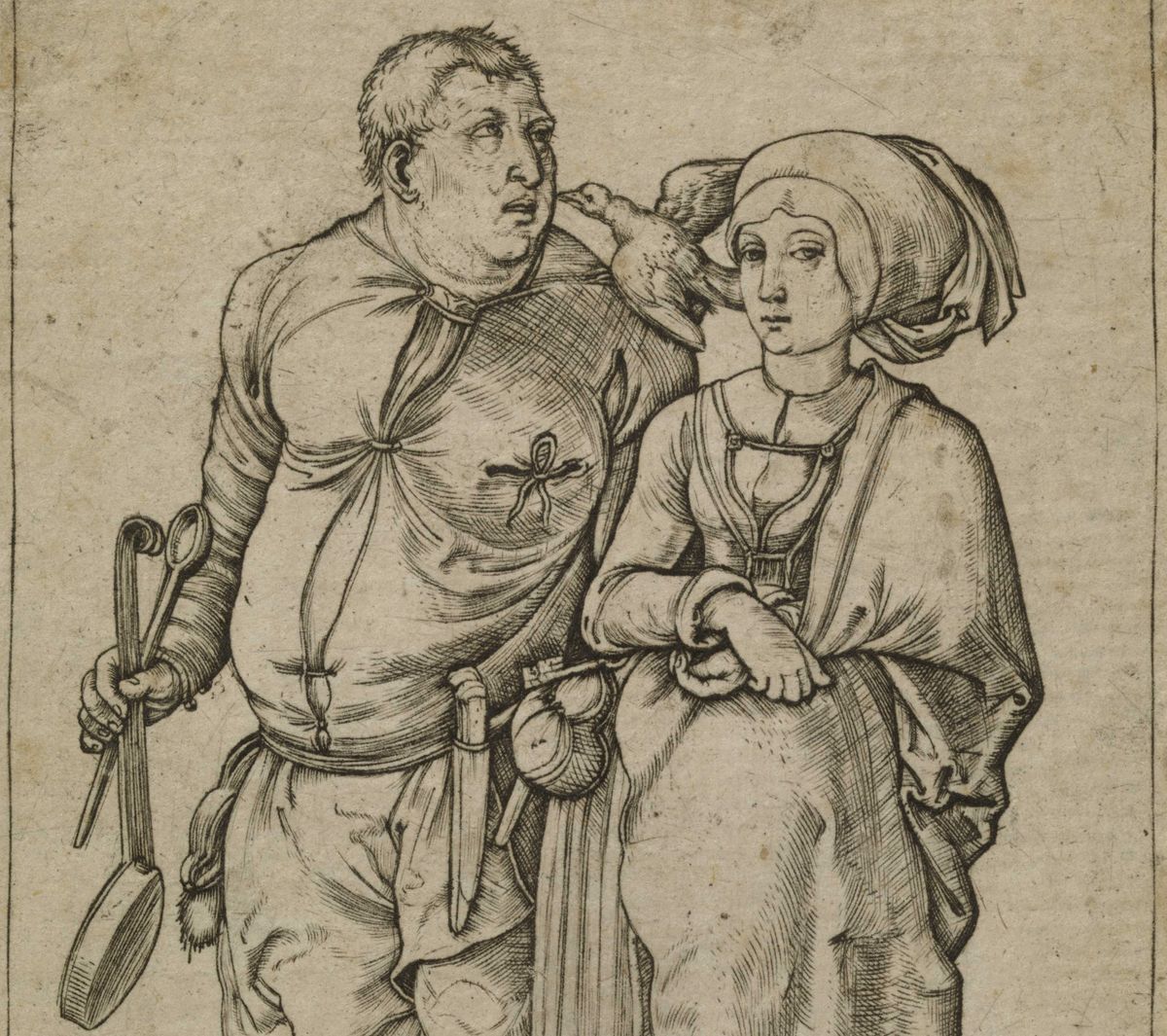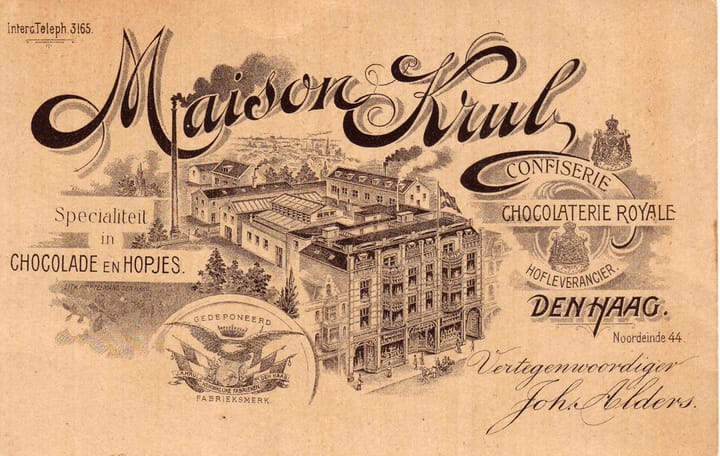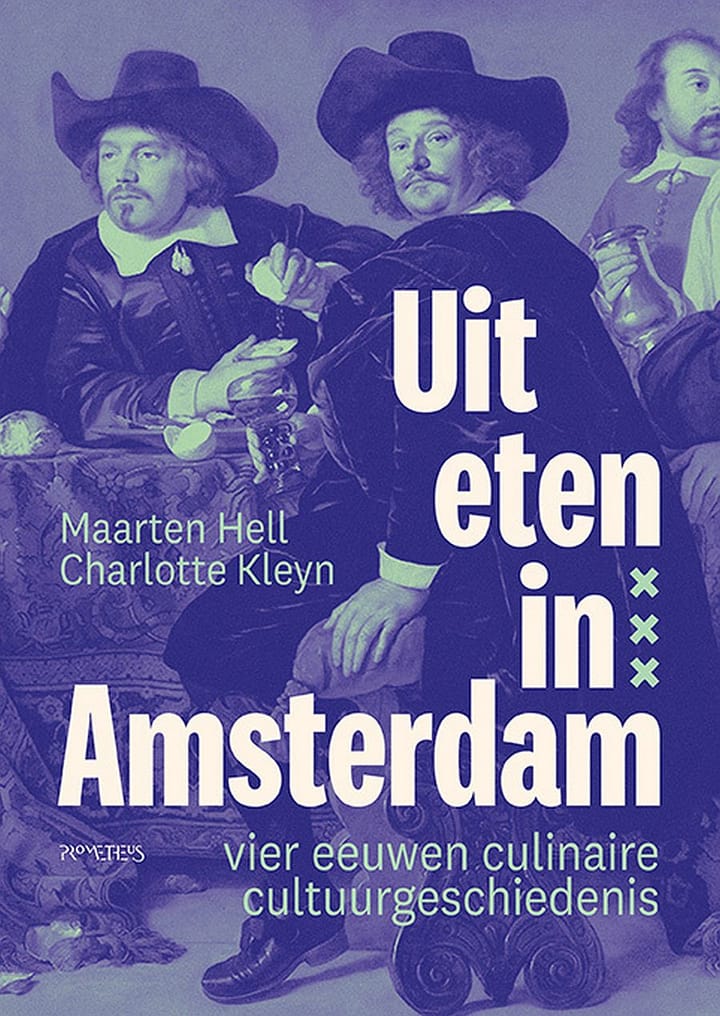The Cook and his Wife

The métier of cook is one of the travelling professions: the cook takes his experience, knowledge and set of knifes – and perhaps even his wife – and takes service where his expertise is needed. Court kitchen, downstairs at the manor, in a hotel, or a restaurant.
It’s partly how the cooking culture in the pre-cookinbook and cookschool ages – spread across Europe. French, German, Flemish, Swiss, Italian, and Spanish cooks for instance found their ways to the royal and lesser courts in Europe, at least from the 16thcentury onwards. Possibly also before that time, but that’s still a bit in the dark, not many names of travelling cooks are known. Or cooks at all, for that matter.
When a young Willem van Oranje (prince William of Orange) joined the army to do a summer of fighting his cook came along, including his large copper cookingpot and ladle. And a new knife.
Conrad Hagger – the chef of the Salzburgian prince-bishop – writes in the introduction of his cookbook that during the mêlée when their lords were fighting, the cooks borrowed from each other to provide their lords an acceptable dinner in their tents, after the fighting was over for the day. Recipes, ingredients, ideas and experiences were freely exchanged. This was at the end of the 17th, early 18th century.
The nobility in the England of the 18th Century just had to have a French cook with all the latest titbits in his repertoire. Certainly recipes to be shared. Yet most cooks leave us no trace about their working life, the places they’ve been to. Some travel between Versailles and England, some travel from Paris to The Hague, of one of the German courts, or even st. Peterburg, or Portugal. The va-et-vient might even indicate that the French cooks were an appreciated export article.
One of the more famous French cooks, Vincent de la Chapelle travelled widely, before settling at the end of his life in the Frisian capital of Leeuwarden, at the court of the stadholder William IV. His books were dedicated to his subsequent lords, and even include Dutch recipes, in the final version. Here a link to the online version of The Modern Cook (1735) , dedicated to the prince of Orange. https://gallica.bnf.fr/ark:/12148/bpt6k1042599r.image
Even more famous is Urbain Dubois, who left Paris in the 1840s and after some time became the chef of prince Alexey Orlov, one of ambassadors of the Russian tzar Nicolas I. Later he went to the court of the Prussian Hohenzollern, with his colleague Emile Bernard, cooking alternate months. Thus he found time to write his cookery books, including of course many internationally inspired dishes.
Those able to cook extremely well, to manage the kitchen staff, always found work. Though sometimes things may go agley. Think of the war of 1870-1871 – when French cooks at a German court would be in trouble. Back to Paris for Dubois, for a time. Or think of the poor cook of William of Orange, Herman Coenegracht. William must flee (1567) the Spanish army, but his cooks stays. His wife and daughters ran the most important Inn in the heart of Breda. He stays with his family. But… the cook of the enemy is not welcome in the kitchen of the new powers. It was the end of his career at the Court. Luckily, the Inn kept the family going.


